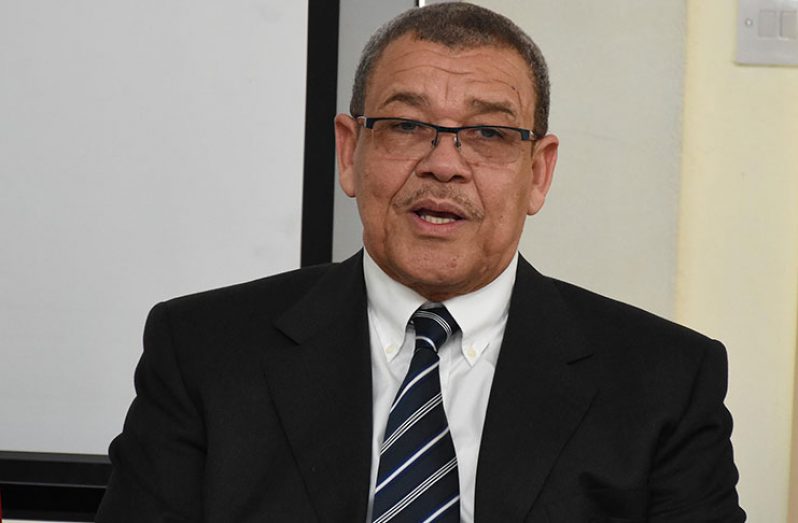THE Guyana Revenue Authority (GRA) is keen on preventing the loss and reduction of profits from the oil and gas sector through inter-company manipulation of revenue associated with the sale of oil. This is according to Commissioner-General Godfrey Statia, during a presentation to the Consultative Association of Guyanese Industries (CAGI) on petroleum taxation.
Statia said that revenue associated with the sale of oil can be subject to manipulation through inter-company and related party transactions. He said exaggerated costs of services could result in a decrease in available profit-oil, while deliberately depressed oil prices or non-arm’s length transactions in the sale of oil can also lead to a reduced share to the government and a larger share to the contractor. Statia pointed out that differing tax rates in jurisdictions where the contractor or its subsidiaries operate, can also create the incentive to shift profits out of Guyana to zero or low-tax jurisdictions and shift costs into Guyana, thereby distorting the tax base and profit base for profit-oil sharing.
The GRA head said that it is not unusual for multinationals to incur legitimate costs in the form of business overheads for services such as accounting, human, marketing, procurement and IT among others, but these costs should be fair, reasonable and in line with arm’s length principles, the commissioner-general related. He said, “Excessive debt financing and recoverable interest should also be subjected to scrutiny and be subjected to limitations, especially so when the loan transactions are between affiliated or associated companies. Thinly capitalised positions in the absence of rules aimed at limiting interest claims will be challenging and will require stringent policing efforts by the GRA.” Statia insisted.
He said on the revenue side, accurate reporting of the components of gross revenue such as volume of production and sale price (value) of production, would have to be safeguarded. “The greater risk lies in accurately assessing the true market value of oil, especially when such a sale takes place between affiliated companies. When the sale is between unrelated third parties, market values are easier discerned through international benchmarks after considering crude quality, upliftment and production methods,” Statia highlighted.
He said the ability to move revenues and shift costs between countries has become common for multinational companies. “Complex corporate structures are adopted by many multinational companies, often using a conduit company; subsidiary, incorporated in a low-tax or tax haven jurisdiction, as part of the chain of ownership leading to the main operator in the host country.”
Realising that GRA lacks the capacity to fully scrutinise the oil industry, Statia said international assistance has been sought. The GRA said it has reached out to the Office of Technical Assistance (OTA), the International Monetary Fund (IMF), the World Bank, the Commonwealth Secretariat, the United Kingdom, and Trinidad and Tobago, for training and secondment/attachments to help deal with the related issues.



.jpg)








